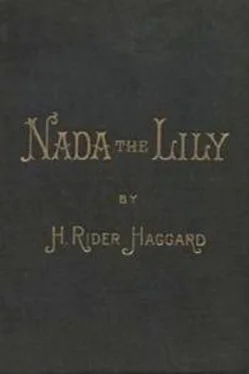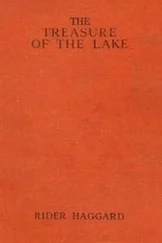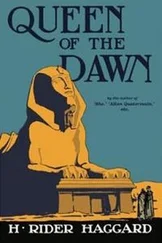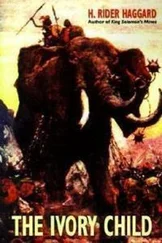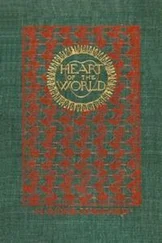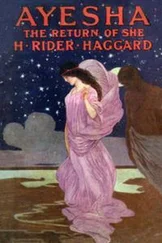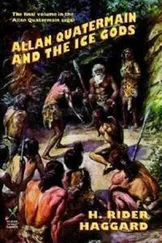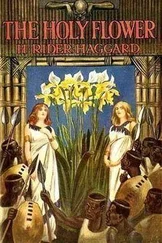Thus she spoke on, gaining time, and all the while she watched Umslopogaas till she was sure that it was he and no other. Then she ceased talking, and, flinging herself on him, she kissed him.
"Now I trust that Zinita sleeps sound," murmured Umslopogaas, for suddenly he remembered that Nada was no sister of his, as she thought.
Nevertheless, he took her by the hand and said, "Enter, sister. Of all maidens in the world you are the most welcome here, for know I believed you dead."
But I, Mopo, ran into the hut before her, and when she entered she found me sitting by the fire.
"Now, here, my brother," said Nada, pointing at me with her finger, "here is that old umfagozan, that low fellow, who, unless I dream, but a very little while ago brought shame upon me—ay, my brother, he struck me, a maid, with his kerrie, and that only because I said that I would stab him for his insolence, and he did worse: he swore that he would drag me to some old chief of his to be a gift to him, and this he was about to do, had you not come. Will you suffer these things to go unpunished, my brother?"
Now Umslopogaas smiled grimly, and I answered:—
"What was it that you called me just now, Nada, when you prayed me to protect you? Father, was it not?" and I turned my face towards the blaze of the fire, so that the full light fell upon it.
"Yes, I called you father, old man. It is not strange, for a homeless wanderer must find fathers where she can—and yet! no, it cannot be—so changed—and that white hand? And yet, oh! who are you? Once there was a man named Mopo, and he had a little daughter, and she was called Nada—Oh! my father, my father, I know you now!"
"Ay, Nada, and I knew you from the first; through all your man's wrappings I knew you after these many years."
So the Lily fell upon my neck and sobbed there, and I remember that I also wept.
Now when she had sobbed her fill of joy, Umslopogaas brought Nada the Lily mass to eat and mealie porridge. She ate the curdled milk, but the porridge she would not eat, saying that she was too weary.
Then she told us all the tale of her wanderings since she had fled away from the side of Umslopogaas at the stronghold of the Halakazi, and it was long, so long that I will not repeat it, for it is a story by itself. This I will say only: that Nada was captured by robbers, and for awhile passed herself off among them as a youth. But, in the end, they found her out and would have given her as a wife to their chief, only she persuaded them to kill the chief and make her their ruler. They did this because of that medicine of the eyes which Nada had only among women, for as she ruled the Halakazi so she ruled the robbers. But, at the last, they all loved her, and she gave it out that she would wed the strongest. Then some of them fell to fighting, and while they killed each other—for it came about that Nada brought death upon the robbers as on all others—she escaped, for she said that she did not wish to look upon their struggle but would await the upshot in a place apart.
After that she had many further adventures, but at length she met an old woman who guided her on her way to the Ghost Mountain. And who this old woman was none could discover, but Galazi swore afterwards that she was the Stone Witch of the mountain, who put on the shape of an aged woman to guide Nada to Umslopogaas, to be the sorrow and the joy of the People of the Axe. I do not know, my father, yet it seems to me that the old witch would scarcely have put off her stone for so small a matter.
Now, when Nada had made an end of her tale, Umslopogaas told his, of how things had gone with Dingaan. When he told her how he had given the body of the girl to the king, saying that it was the Lily's stalk, she said it had been well done; and when he spoke of the slaying of the traitor she clapped her hands, though Nada, whose heart was gentle, did not love to hear of deeds of death. At last he finished, and she was somewhat sad, and said it seemed that her fate followed her, and that now the People of the Axe were in danger at the hands of Dingaan because of her.
"Ah! my brother," she cried, taking Umslopogaas by the hand, "it were better I should die than that I should bring evil upon you also."
"That would not mend matters, Nada," he answered. "For whether you be dead or alive, the hate of Dingaan is already earned. Also, Nada, know this: I am not your brother."
When the Lily heard these words she uttered a little cry, and, letting fall the hand of Umslopogaas, clasped mine, shrinking up against me.
"What is this tale, father?" she asked. "He who was my twin, he with whom I have been bred up, says that he has deceived me these many years, that he is not my brother; who, then, is he, father?"
"He is your cousin, Nada."
"Ah," she answered, "I am glad. It would have grieved me had he whom I loved been shown to be but a stranger in whom I have no part," and she smiled a little in the eyes and at the corners of her mouth. "But tell me this tale also."
So I told her the tale of the birth of Umslopogaas, for I trusted her.
"Ah," she said, when I had finished, "ah! you come of a bad stock, Umslopogaas, though it is a kingly one. I shall love you little henceforth, child of the hyena man."
"Then that is bad news," said Umslopogaas, "for know, Nada, I desire now that you should love me more than ever—that you should be my wife and love me as your husband!"
Now the Lily's face grew sad and sweet, and all the hidden mockery went out of her talk—for Nada loved to mock.
"Did you not speak to me on that night in the Halakazi caves, Umslopogaas, of one Zinita, who is your wife, and Inkosikaas of the People of the Axe?"
Then the brow of Umslopogaas darkened: "What of Zinita?" he said. "It is true she is my chieftainess; is it not allowed a man to take more than one wife?"
"So I trust," answered Nada, smiling, "else men would go unwed for long, for few maids would marry them who then must labour alone all their days. But, Umslopogaas, if there are twenty wives, yet one must be first. Now this has come about hitherto: that wherever I have been it has been thrust upon me to be first, and perhaps it might be thus once more—what then, Umslopogaas?"
"Let the fruit ripen before you pluck it, Nada," he answered. "If you love me and will wed me, it is enough."
"I pray that it may not be more than enough," she said, stretching out her hand to him. "Listen, Umslopogaas: ask my father here what were the words I spoke to him many years ago, before I was a woman, when, with my mother, Macropha, I left him to go among the Swazi people. It was after you had been borne away by the lion, Umslopogaas, I told my father that I would marry no man all my life, because I loved only you, who were dead. My father reproached me, saying that I must not speak thus of my brother, but it was my heart which spoke, and it spoke truly; for see, Umslopogaas, you are no brother to me! I have kept that vow. How many men have sort me in wedlock since I became a woman, Umslopogaas? I tell you that they are as the leaves upon a tree. Yet I have given myself to none, and this has been my fortune: that none have sought to constrain me to marriage. Now I have my reward, for he whom I lost is found again, and to him alone I give my love. Yet, Umslopogaas, beware! Little luck has come to those who have loved me in the past; no, not even to those who have but sought to look on me."
"I will bear the risk, Nada," the Slaughterer answered, and gathering her to his great breast he kissed her.
Presently she slipped from his arms and bade him begone, for she was weary and would rest.
So he went.
Chapter XXXI.
The War of the Women
Now on the morrow at daybreak, leaving his wolves, Galazi came down from the Ghost Mountain and passed through the gates of the kraal.
Читать дальше
